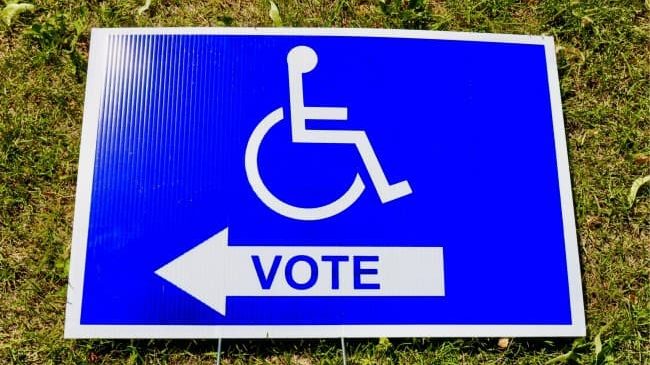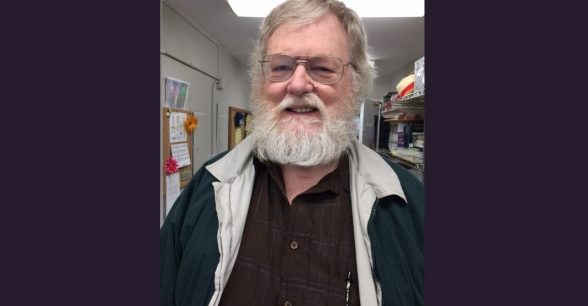Why Do I #CripTheVote? Because the Disability Vote is Power.
This post is part of a partnership between #CripTheVote and Rooted in Rights.
As a child, I didn’t think being disabled had anything to do with voting, or vice versa. I saw that my parents always voted, but I didn’t see it as an important part of my life as an American. Experience taught me just how wrong I was.
When I was 18 and first tried to vote, I almost didn’t succeed. There were many hurdles, including obtaining transportation, filling in my ballot, and proving my identity.
I had no driver’s license and didn’t yet have a government identification card. My disability didn’t completely destroy my capacity to vote, though. I didn’t have to worry. I had my brother to vouch that I was who I said I was.
“Can you vouch for him?” The volunteer asked my brother, flitting his hand toward me. I was already stressed, and now I felt my identity being doubted. I felt small.
I remember that I had “spoiled” a few ballots. My spatial reasoning is impaired, and the ballots were cluttered to the point that I struggled to fill them in properly. The third ballot was the charm. I remember being both ashamed at the looks I got from the voters and volunteer staff, and also proud that I was finally voting, my hands trembling as I slid the ballot into the slot of the voting machine.
From my place in the passenger’s seat, after I had cast my vote, I thought to myself: what if I didn’t have my brother? If there was no champion to vouch for me, would my voice go unheard? How many people are turned away because they don’t have a license? How many people go unrecognized because they don’t have reliable transportation?
Plagued by these thoughts, I asked my brother: “what will I do next time, when you aren’t here?”
“You’ll be able to drive by then” he insisted as we turned down the quarter-mile-long dirt road to our childhood home.
It’s been six years. I still don’t drive.
But I’m fortunate. I now have a government Identification card. My brothers don’t drive me, but my parents do. And yet, my disability leaves me in a precarious position — moving from one chauffeur to another.
“What will I do when you aren’t here?” I ask that question to my parents now. In a rural area where public transit is non-existent, the answer isn’t a good one.
If I lose the support of my aging parents, I too will go unrecognized. I vote while I can. I vote, even when it’s difficult, because voting might be stressful, but it’s important.
I vote for myself. Living with a disability makes it difficult to get and keep a sense of belonging. I frequently feel that disability is my personal struggle — that I don’t have a voice. When I vote, I get the feeling that I’m part of the fabric of America, not just as a voter or a disabled person, but as both at once. When I vote, I not only reclaim some of the political power lost to my disability, I become someone empowered and emboldened.
I vote for others. I still ask myself those questions from the passenger’s seat, my father beside me; the combines standing sentry on the way to the small building that houses a single voting machine for the town’s 74 residents.
I wonder how many people walk like me, talk like me, think like me, live in places like this, and are locked out of the political process.
I vote because there is power, agency, and dignity in voting.
When I cast my ballot in November, I will be claiming this power for myself, and showing that others deserve and demand it as well. That’s why I #CripTheVote.
About Rooted In Rights
Rooted in Rights exists to amplify the perspectives of the disability community. Blog posts and storyteller videos that we publish and content we re-share on social media do not necessarily reflect the opinions or values of Rooted in Rights nor indicate an endorsement of a program or service by Rooted in Rights. We respect and aim to reflect the diversity of opinions and experiences of the disability community. Rooted in Rights seeks to highlight discussions, not direct them. Learn more about Rooted In Rights



